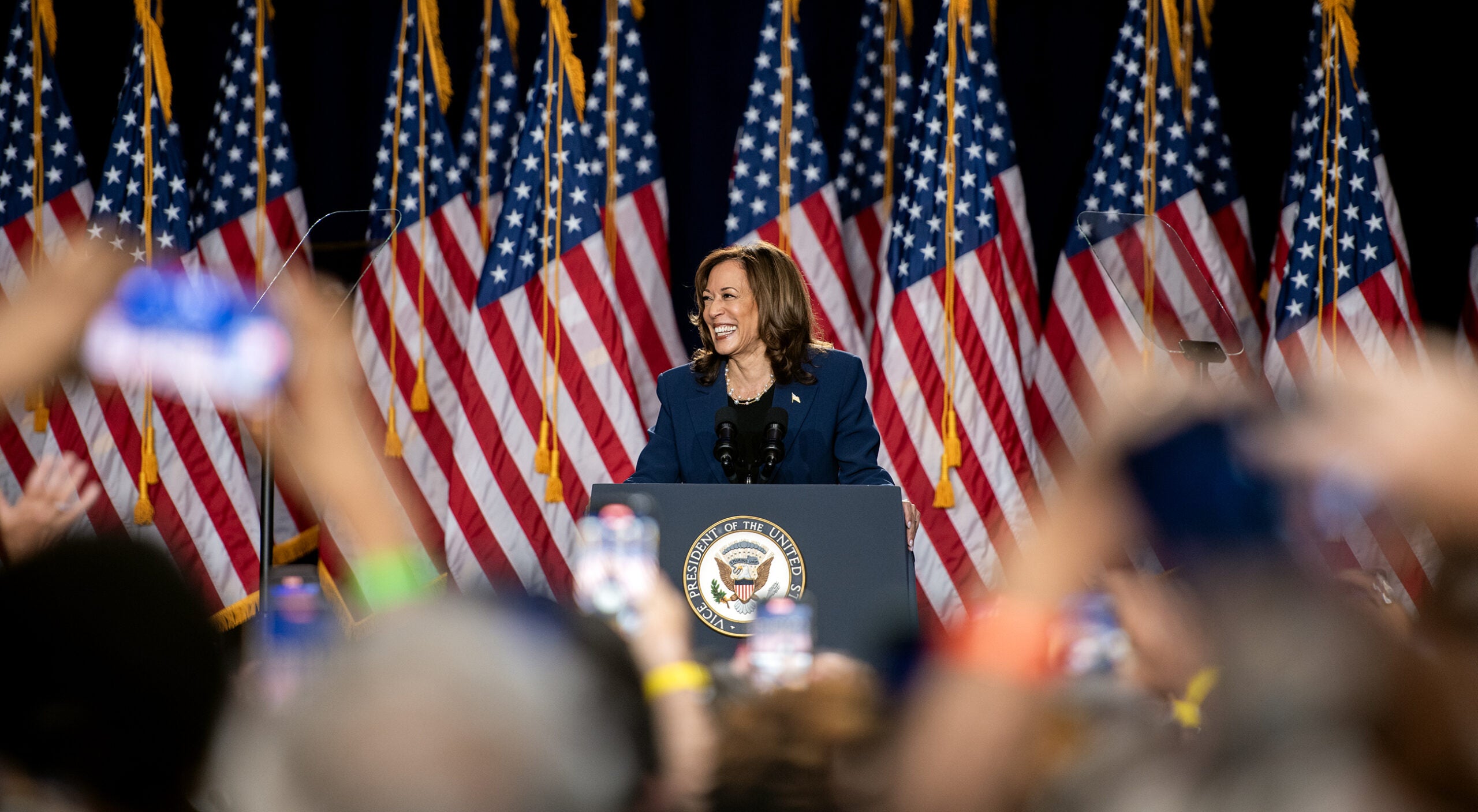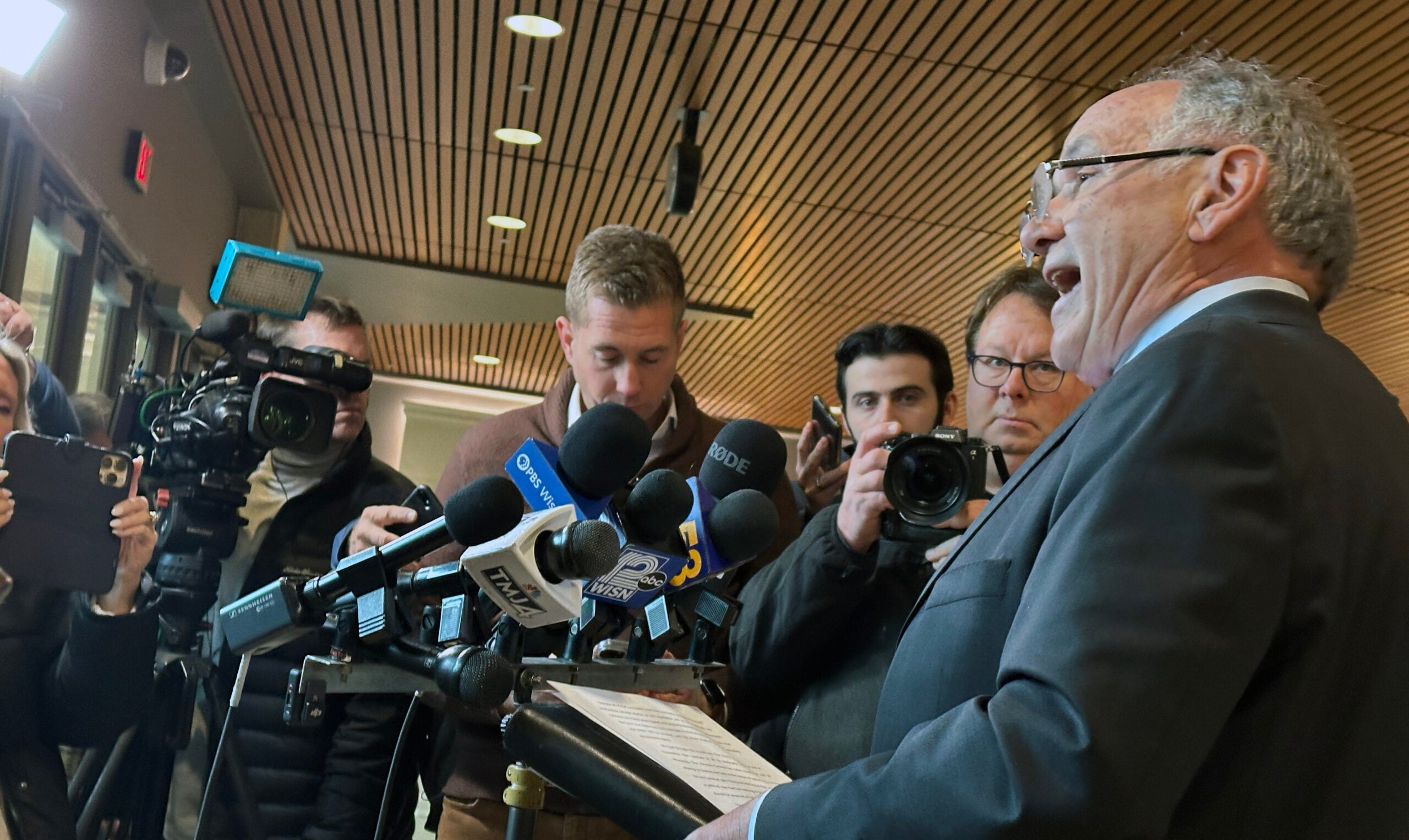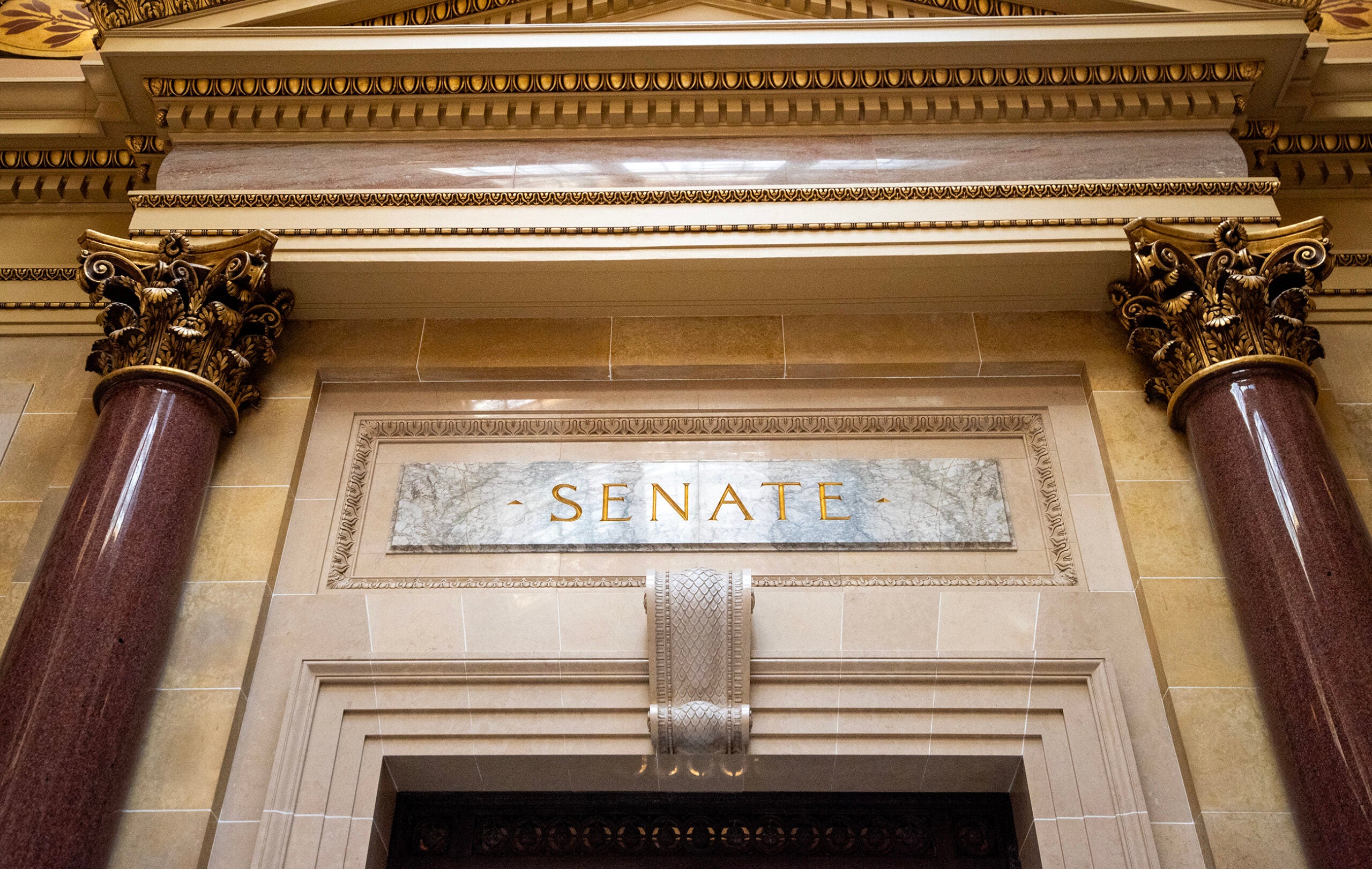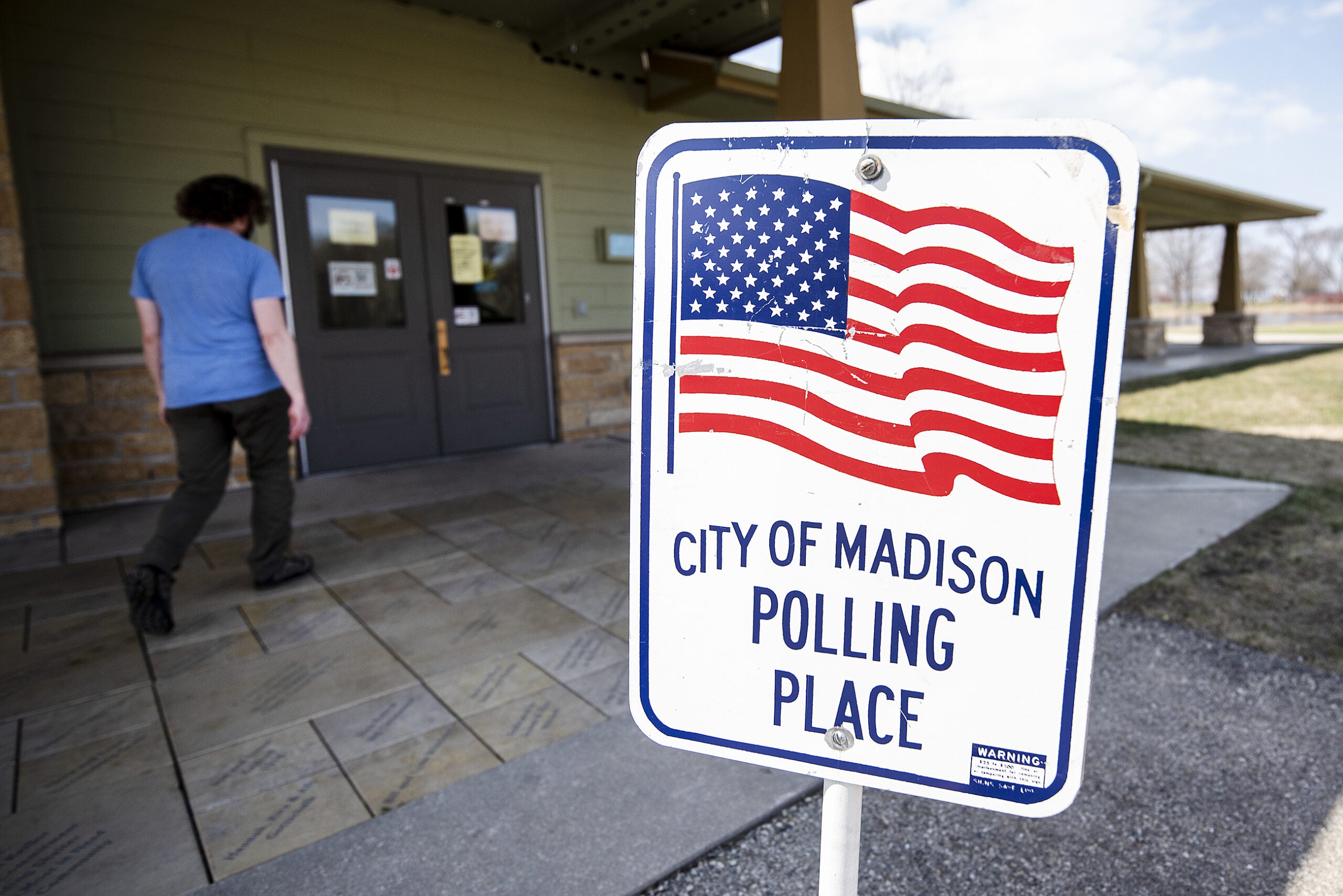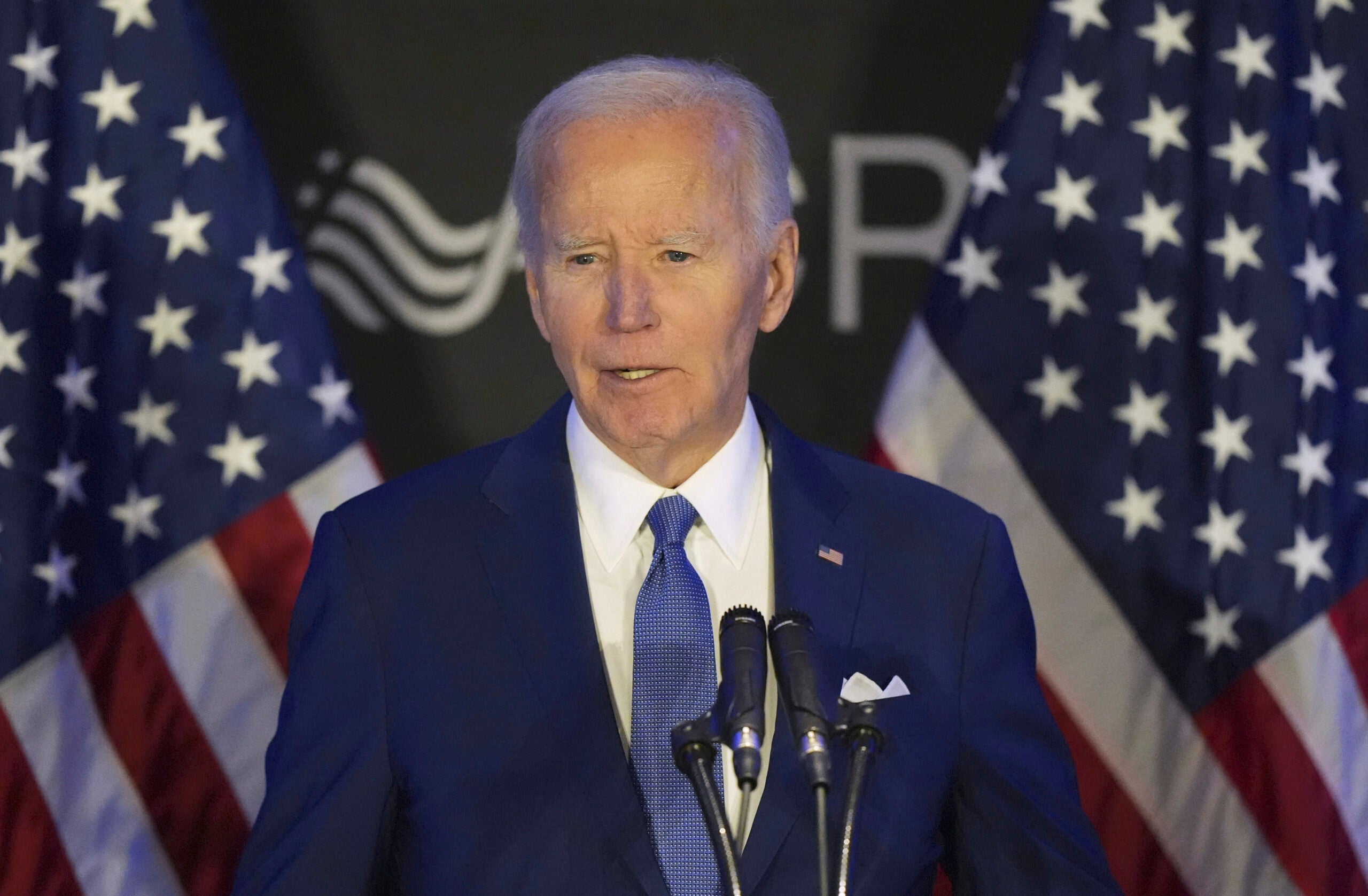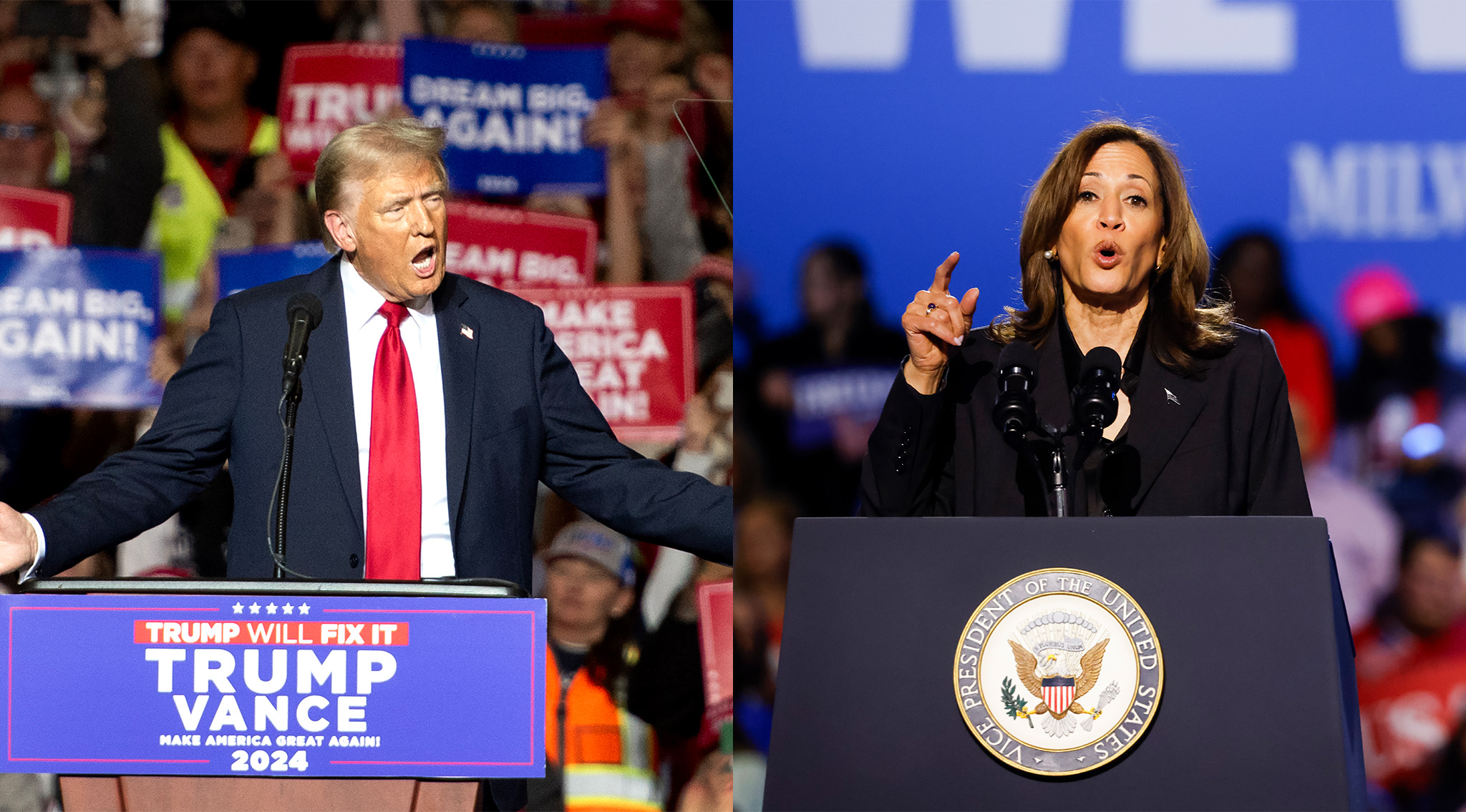When Vice President Kamala Harris announced last week she would travel to Wisconsin, she was still President Joe Biden’s running mate. On Tuesday, she visited the state as her party’s presumptive presidential nominee.
Harris spoke to a rally of supporters outside Milwaukee just two days after Biden dropped out of the race and endorsed her. It was one of Harris’ first public events since the ground shifted in the presidential race, and the Democratic Party quickly coalesced around her candidacy.
The excitement at West Allis Central High School was palpable as Harris took the stage to roars and chants of her first name.
News with a little more humanity
WPR’s “Wisconsin Today” newsletter keeps you connected to the state you love without feeling overwhelmed. No paywall. No agenda. No corporate filter.
“The path to the White House goes through Wisconsin,” Harris said, calling on those assembled to deliver another Democratic victory this November. “We’ve got some work to do, but we’re not afraid of hard work.”
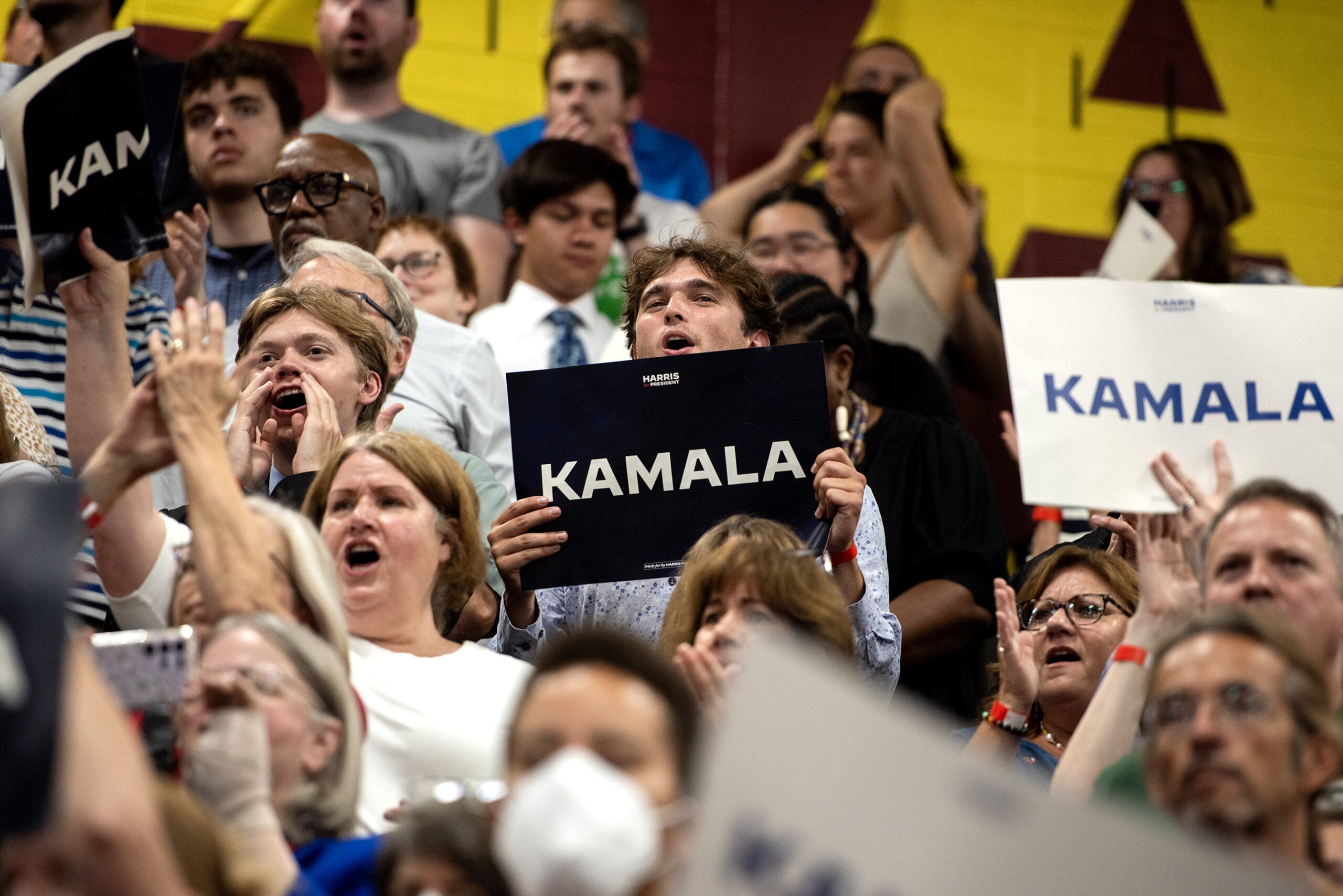
In a short speech that lasted just over 16 minutes, Harris sought to draw a contrast between her record and former President Donald Trump, the Republican presidential nominee. She positioned her background as a prosecutor in California against Trump’s ongoing legal troubles, including criminal indictments.
“But this campaign is not just about us against Donald Trump,” she said. “This campaign is about who we fight for.”
She argued that means the middle class, and said her campaign — and her presidency — would focus on “freedom, compassion and the rule of law.”
Harris got her biggest applause line of the day when she promised to restore abortion rights while in office.
“We trust women to make decisions about their own body and not have their government tell them what to do,” Harris said as the crowd yelled in support.
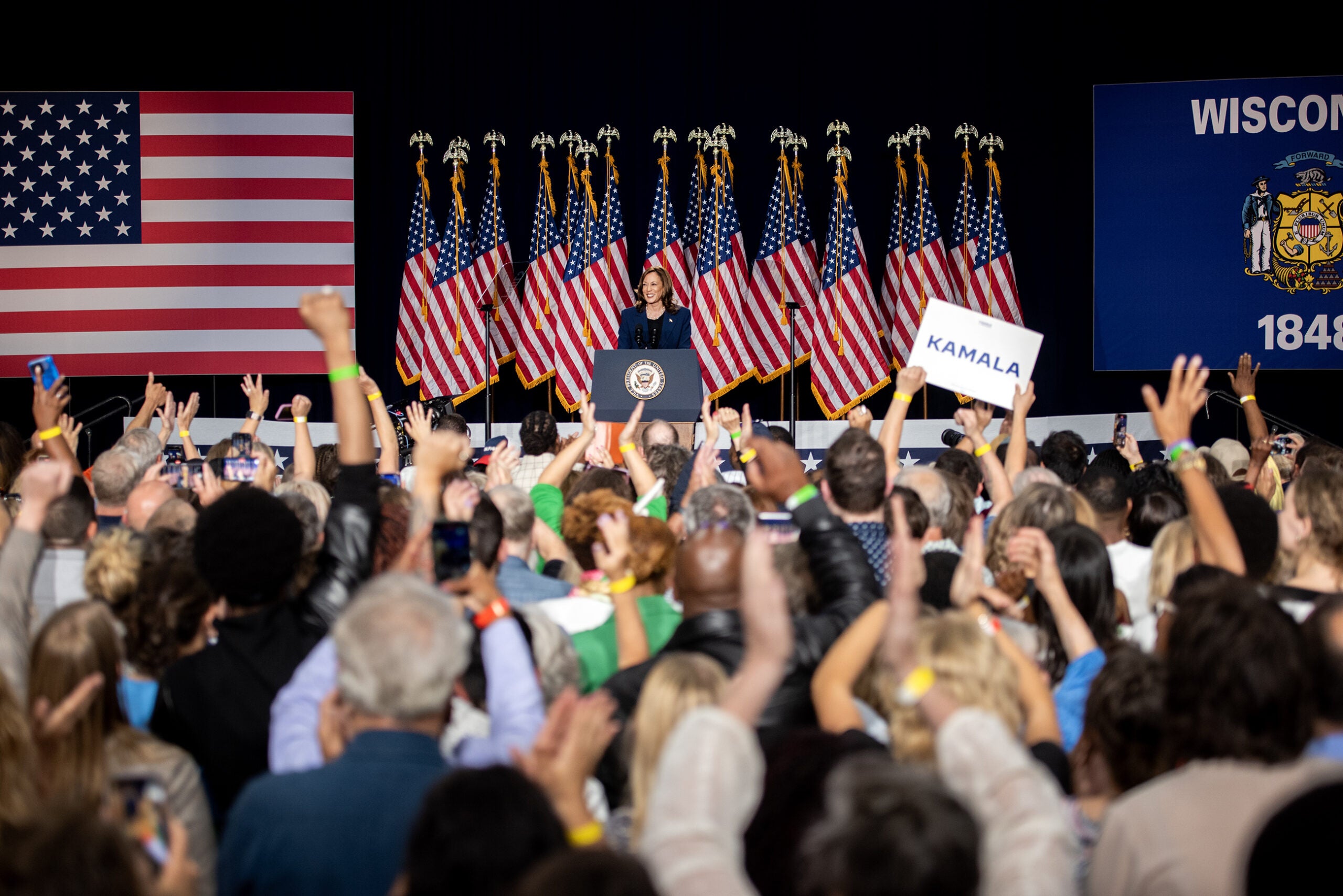
It was Harris’ fifth visit to Wisconsin this year. Her first came in January, when she voiced support for abortion rights during a speech in Waukesha County. Harris returned to the state in March, announcing a federal apprenticeship program in Madison. The vice president visited La Crosse in April, where she celebrated new nursing home staffing rules. And in May, she promoted the Biden administration’s economic record during an event in downtown Milwaukee.
But while Wisconsin is familiar territory for Harris, the circumstances of her visit are anything but ordinary. The vice president’s ascension from running mate to presumptive nominee has been lightning fast this week.
By Monday afternoon — one day after Biden left the race — Democratic Party of Wisconsin Chair Ben Wikler said 89 of Wisconsin’s 95 Democratic delegates had pledged to support Harris. Nationally, an Associated Press survey found Harris has already secured enough delegates to become the nominee.
“I am thrilled — thrilled — that the next President of the United States has decided to kick off her 104-day sprint to the White House in the great state of Wisconsin,” Wikler said.
Wikler was among several Wisconsin Democrats who spoke in West Allis before Harris took the stage, and the crowd cheered loudly when he told them about her delegate count. Other Democrats who spoke included U.S. Sen. Tammy Baldwin, Gov. Tony Evers, Attorney General Josh Kaul, Secretary of State Sarah Godlewski, State Superintendent of Public Instruction Jill Underly and Milwaukee County Executive David Crowley.
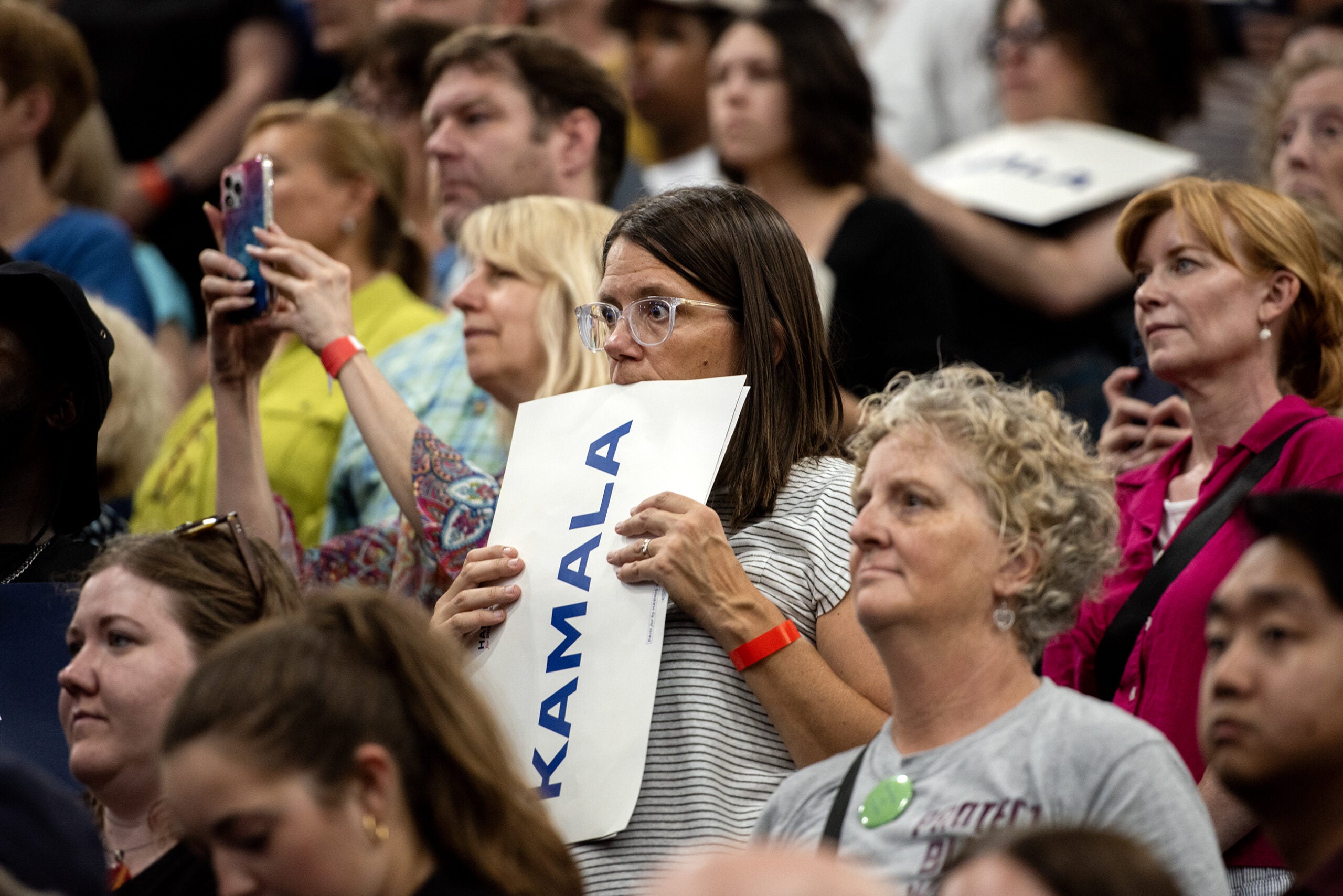
They referred extensively to Project 2025, a conservative policy agenda that would expand the powers of the federal government. The Biden campaign sought to tie Trump closely to the think tank-authored platform, and speakers at Tuesday’s rally gave every indication that messaging would continue under the Harris campaign.
Evers offered a familiar folksy greeting to Harris, saying he was “jazzed as hell” to welcome her to Wisconsin. He painted the Trump ticket as “extremist,” and said that the state of Wisconsin would stop that agenda.
The audience was also energized by messaging celebrating Harris herself. Some of the biggest cheers of the day came when Evers pointed out that Harris could become the first female president.
Wisconsin’s delegates will join more than 4,600 others nationally in officially nominating the party’s candidate for president. That could happen virtually by Aug. 7, well before the Democratic National Convention in Chicago begins on Aug. 19. Harris could formally accept the nomination at the DNC on Aug. 22.
Earlier in the day, Wisconsin Republicans criticized the unusual process by which the Democratic campaign has unfolded.
“This thing was as rigged as it gets, let’s be honest here,” said Wisconsin GOP chair Brian Schimming.
“And frankly, not just against Joe Biden,” he added. “But (against) Democratic primary voters and to the people of this country.”
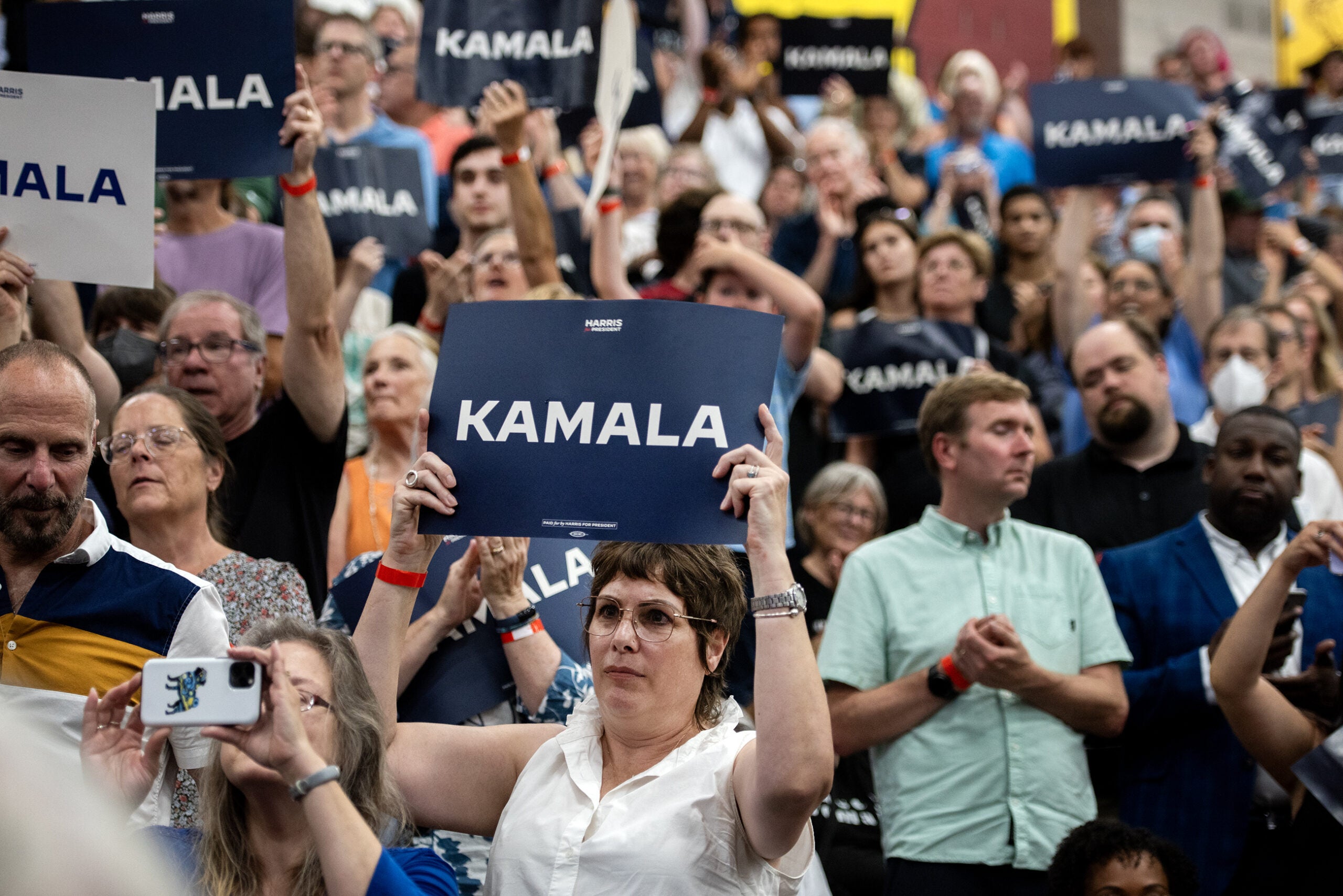
Harris supporters say they trust her to finish campaign
Several voters who came to West Allis to see Harris said they’re afraid of another Trump term and what it could mean for issues like reproductive rights, climate change, gun control and the economy.
They included members of organized labor, like Thomas Bennett, the secretary-treasurer of Teamster Local 200 and Joint Council 39. Bennett said he supports Harris because of her work with Biden to pass the American Rescue Plan Act, which he said saved the pensions of millions of union members. Bennet said he trusts Harris to support unions.
“I think she’s very engaged,” Bennet said. “Joe was an absolutely union-supportive candidate. Ms. Harris will pick up the work that’s already been done by President Biden and carry it with a torch to the next level.”
Rose Larson is a 56-year-old mom who works as a recruiter. She wore a shirt that said “Vote,” featuring banned books, a Black Lives Matter symbol and female reproductive organs. Larson said she’s particularly passionate about women’s reproductive rights.
“My grandchildren will have less rights than I ever had. I can’t fathom the country going backward in the trajectory that it is right now,” Larson said.
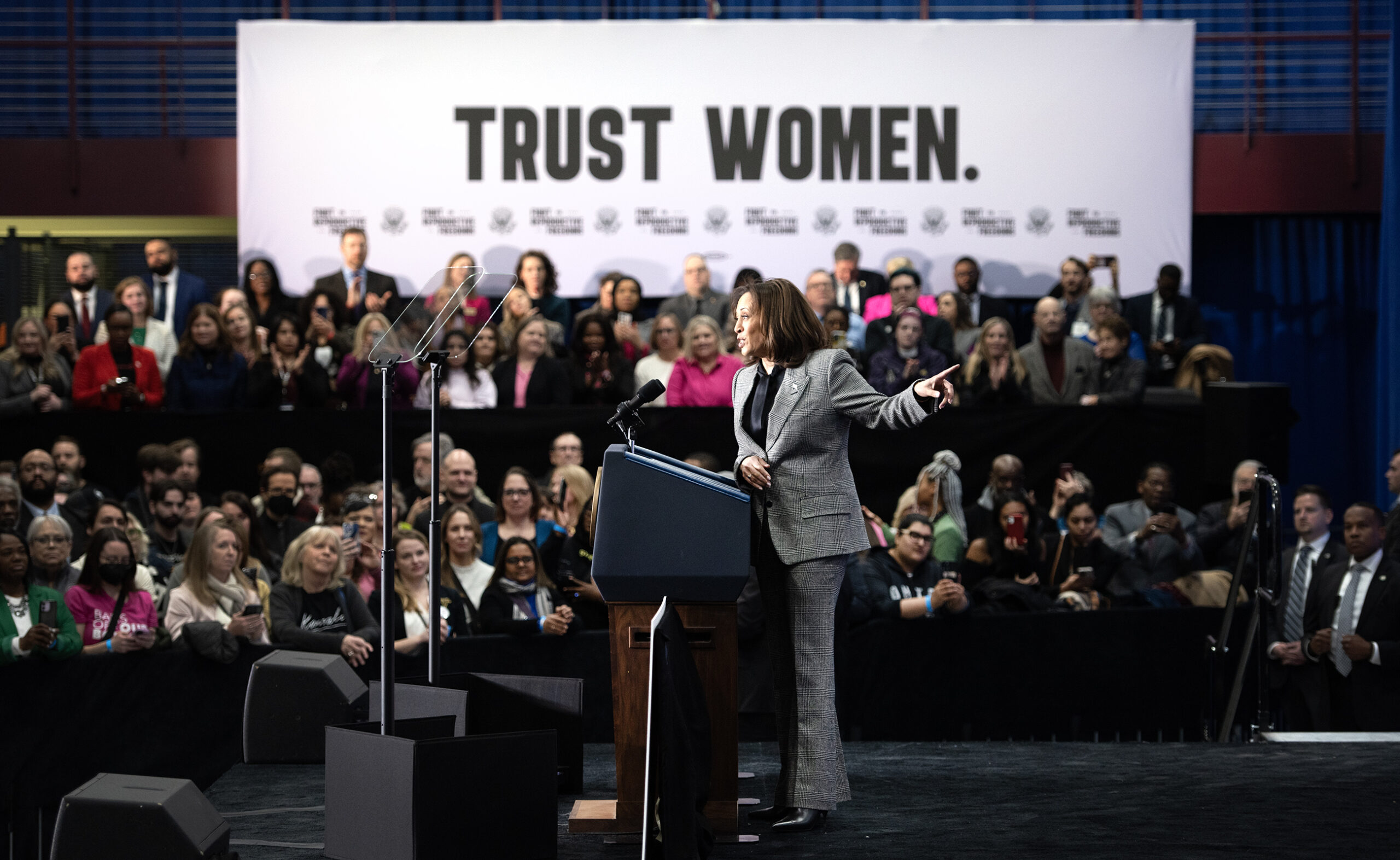
Joyce King-McIver lives in Brookfield, one of many Milwaukee suburbs with a long history of supporting Republicans where Democrats have worked to make political inroads. She said the Democratic message is speaking to her more because it’s one of hope.
“There are societal ills but we know we can tackle those societal ills with hope instead of going back and talking about what wasn’t done before. Let’s move forward,” King-McIver said.
Frank Ledezma lives down the street from where Harris spoke. He said he saw people gathering and wanted to check it out.
Ledezma, 55, is currently unemployed. He said he plans to vote for Trump because he likes what he accomplished while he was in office, but he was grateful Harris visited his community.
“I think it’s kind of neat to have it so close and right here instead of halfway across the United States,” Ledezma said.
He plans to read up on Harris’ platform to better understand what she plans to accomplish. If it resonates with him, he said he may reconsider voting for Trump.
“It would be just like buying a TV. I’m not going to just go out and buy the first one I see. I’m going to investigate, see who’s got the better one,” Ledezma said.
Wisconsin Public Radio, © Copyright 2025, Board of Regents of the University of Wisconsin System and Wisconsin Educational Communications Board.

